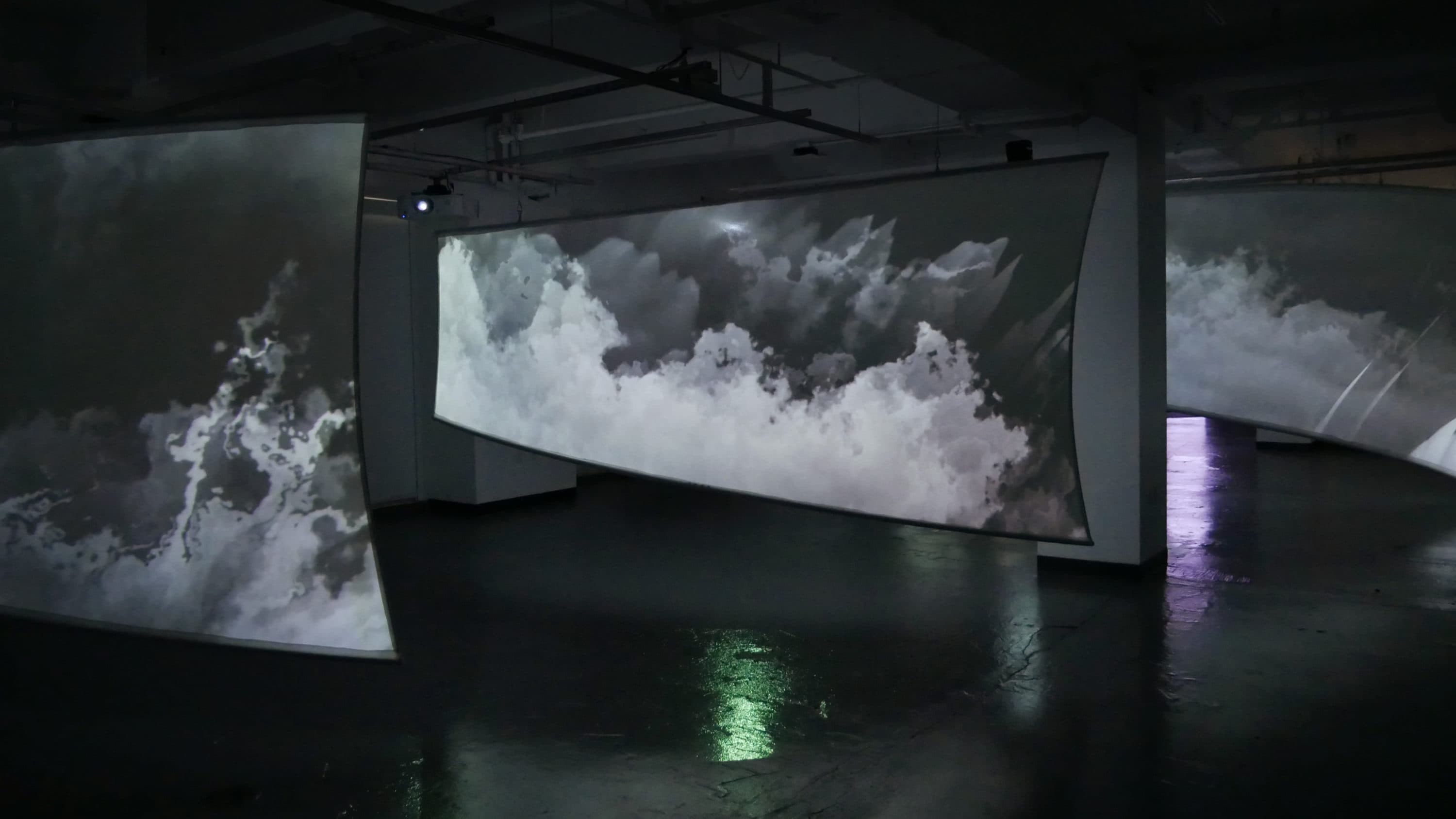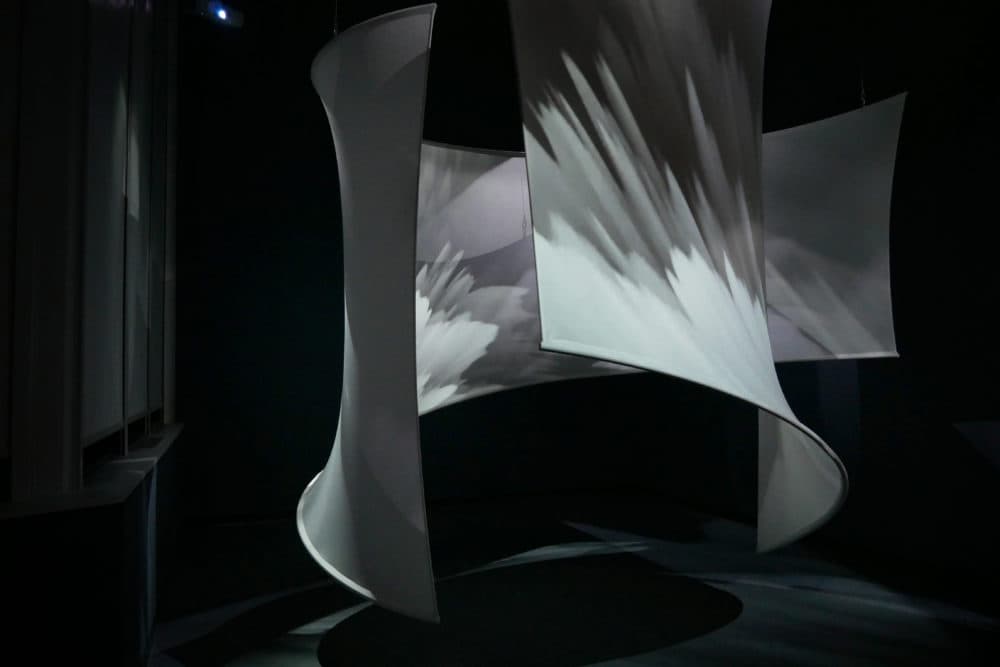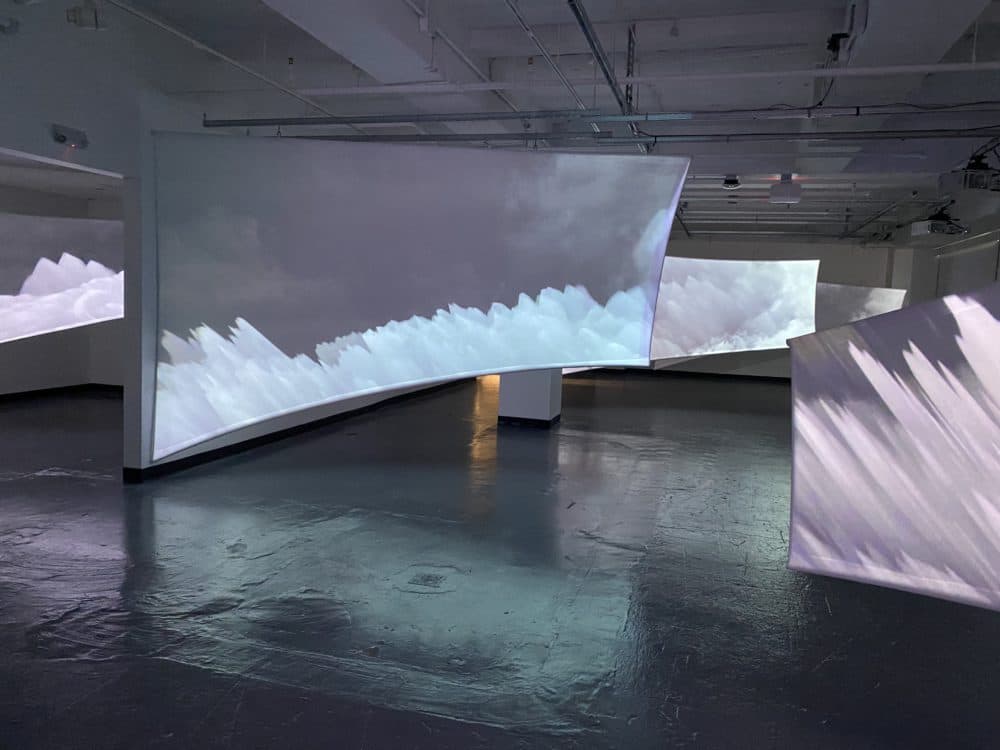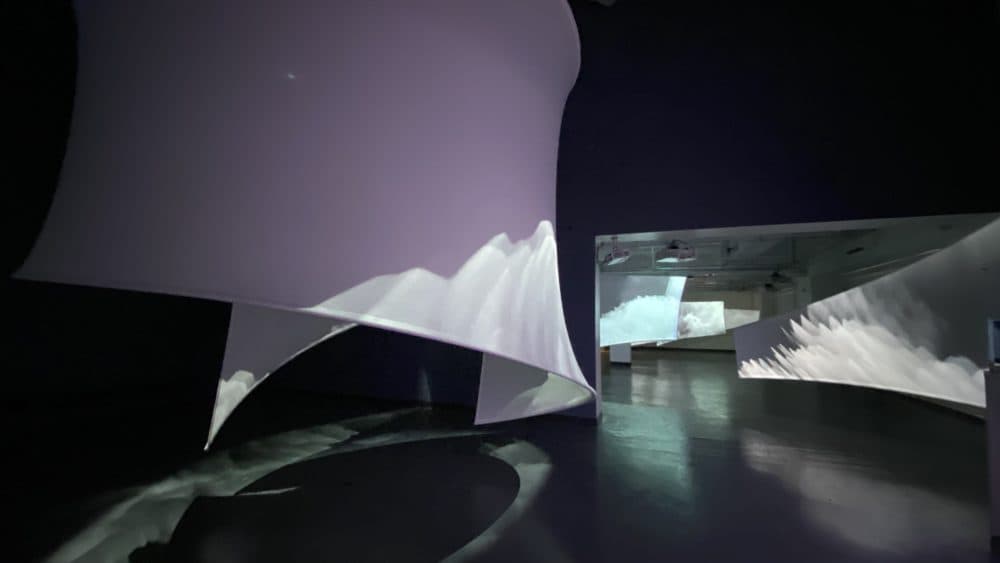Advertisement
An Art Installation Confronts Us With A Hurricane, And Our Role In Climate Change

Stepping into “Hurricane Lost” at the Emerson Contemporary's Media Art Gallery in Boston is a little like being wrapped up in a cocoon. The air outside is cold and sharp; the gallery is dark and warm.
“Suddenly you’re in this completely different environment,” says Leonie Bradbury, curator-in-residence at Emerson College. “There’s a lot of moving images going on, and I think you’re kind of immediately struck by the sound, which really just surrounds you.”

The sound in question is an eerie, encompassing roar. Massive curved screens hang from the ceiling, a fluctuating montage of stormy imagery projected onto them.
Georgie Friedman, the Boston-based artist who created “Hurricane Lost,” hopes the work will confront people with the growing climate crisis, and their complicity in it. The name of the installation is a reference to the impact of climate change on hurricanes, which are becoming more destructive as the earth gets warmer and sea levels rise. (The title gestures, too, to John Milton’s epic poem “Paradise Lost” about the Biblical fall of Adam and Eve — victims of desire, and architects of their own demise.)
The piece uses footage of the ocean off the North Carolina coast — hurricane country. But the videos, which are projected onto huge screens, have been chopped up and heavily filtered. It’s hard to tell if those are clouds or waves, morphing and crashing in an endless loop.

Friedman explains that, paradoxically, she found it easier to evoke the howling power of a hurricane by manipulating footage of the natural world to make it look less naturalistic. “I actually do have a lot of footage of clouds, but the clouds were kind of too slow and methodical,” she says. “And I really wanted ... the pace and the speed of hurricane wind power.”
The soundtrack, by the musician Radio Sloan, is similarly abstract, merging synthesizers with a recording Friedman took of forklifts driving back and forth in the space above her studio. The effect is meditative, and a little menacing. By combining mechanical sounds and natural imagery, Friedman reminds us of our human frailty, and at the same time, our capacity to inflict damage. “Nature is just more powerful than we are,” she says. “But then again, you know, we're affecting it, too, so it’s that back-and-forth.”
Friedman wants her work to evoke powerful emotions, and that is the litmus test she uses when selecting footage for her installations.
Advertisement

“If it hits me in a way and I feel uncomfortable, or something, then I know it's working,” she says. “If I don't feel anything, I know no one else will feel something.”
For that reason, “Hurricane Lost” doesn’t spend a lot of time explaining the science of climate change.
“I feel like we're inundated with all of these facts and figures and numbers and kind of have this data overload,” Friedman says. “And that's not my job.”
As she sees it, the job of art is to make us feel. What we do with that feeling is up to us.
"Georgie Friedman: Hurricane Lost" is on view at the Emerson Contemporary's Media Art Gallery through April 4 and is free and open to the public.
This segment aired on February 18, 2021.
